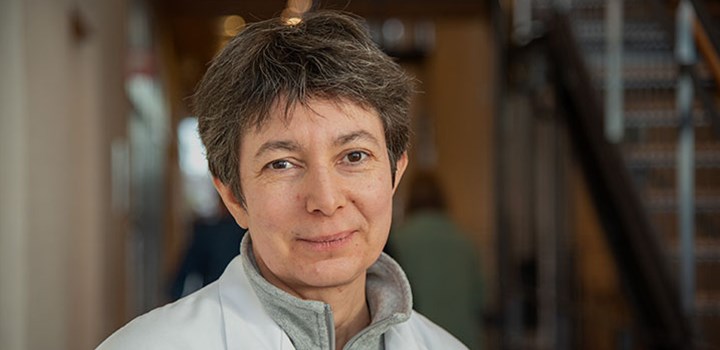Michaela Zeiner: "All researchers can access recent papers"

Michaela Zeiner.
Michaela Zeiner is a senior lecturer in Chemistry and talks about what can be good to think about when publishing with Open Access.
About Michaela Zeiner
Senior Lecturer i Chemistry at the School of Science and Technology.
Her research focus lies on qualitative and quantitative analysis of potentially toxic elements/metals (PTE or PTM) at trace and ultratrace level in a wide range of sample matrices, mainly biological specimens, such as soil, plants, water, fruits and herbs, food stuff. This covers methodological developments and applications of analytical methods for scientific and industrial problems.
Article published with Open Access in the journal Molecules as per the publication agreement between the University Library and MDPI.
What potential benefits and/or difficulties does this entail for you as a researcher?
- Open access has the advantage that all researchers can access recent papers, there is no limitation based on subscription fees esp. in poor countries. Conversely, research results are accessible to everybody and open for misuse and misinterpretation by non-authorized or non-experienced people.
Why have you chosen to publish Open Access?
- Invitation to a special issue based on my research field.
When choosing a journal, do you usually check if the journal offers opportunities to publish Open Access? Is it an important parameter for you?
- Nowadays the most important publishers in my field offer open access, in former years it was not that common, but also less appreciated, since open access papers were considered non-credible ones. Common opinion was that an author pays for having a paper published, like a bribe.
What is your experience of publishing articles Open Access?
- It is important to focus on reliable open access journals/publishers, there is a so-called whitelist where this can be checked (https://doaj.org/). The publishing process, esp. regarding deadlines depends on the publisher/journal not necessarily on the fact if it's open access or not. Journals asking for a paper to be submitted within a few days and promising publishing it within a very short time, are usually unreliable ones.
What does Open Access mean to you?
- Everyone can access, not limited to institutions/persons with subscription.
Some funders offer peer review and Open Access publication on a platform provided by the funder (for example, the European Commission’s Open Research Europe). Such open platforms thus mean that you can publish Open Access free of charge and with peer review, but on a platform instead of a journal. Open Research Europe also explicitly states that they will not apply for an impact factor (with reference to the DORA principles).
What do you think about the opportunity to publish on a funder’s platform? Possible advantages/disadvantages?
- In this case it has to be carefully checked if the paper is counted as “normal” paper, journals are ranked within one subject, this ranking also influencing the “power” of a paper. When this is not given, it might reduce the willingness to publish there.
Do you have any tips for other researchers who have not published articles Open Access but are interested?
- To carefully check the journal and the publishing conditions prior to submission.
